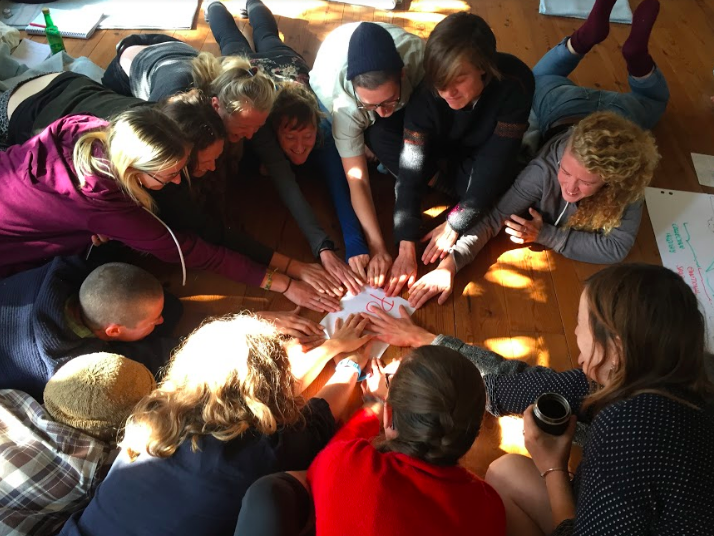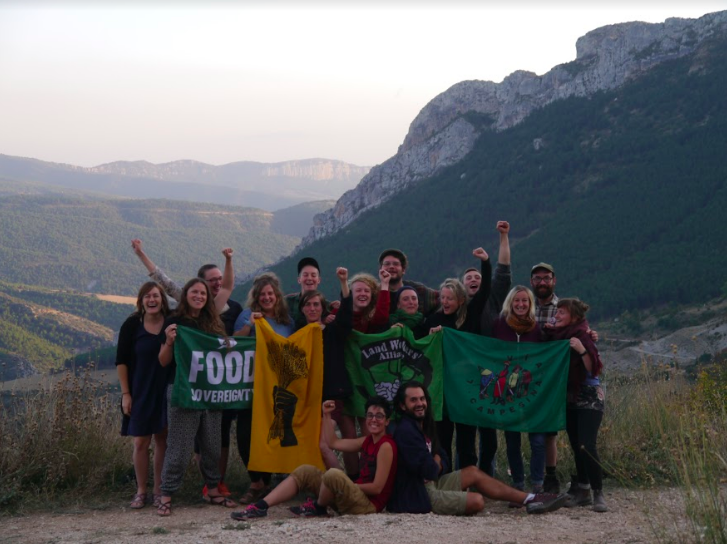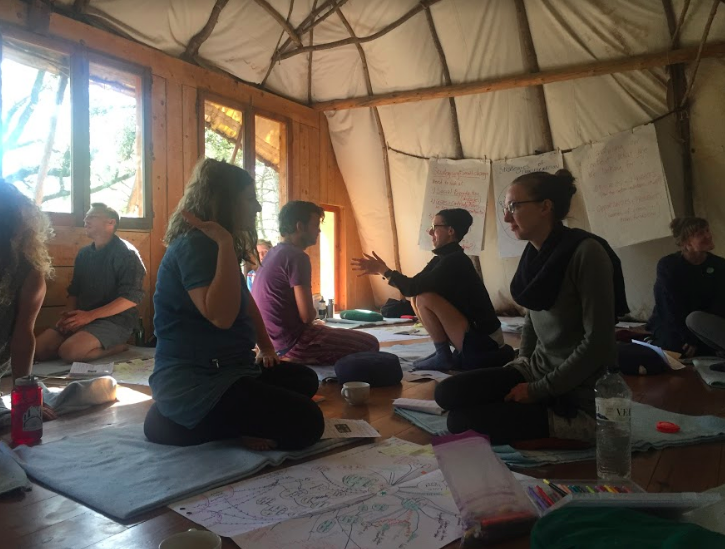
I’ve been a member of the Landworkers Alliance for five years, and more recently joined the Coordinating Group, currently working as the Policy and Campaigns Coordinator for Scotland. The Landworkers Alliance is a union of farmers, growers, foresters and land-based workers with a mission to improve the livelihoods of our members and create a better food and land-use system for everyone. We work for a future where producers can work with dignity to earn a decent living and everyone can access local, healthy and affordable food, fuel and fibre – a food and land-use system based on agroecology and food sovereignty that furthers social and environmental justice. We are the UK branch of Via Campesina, the international Peasant’s movement which represents over 200 million peasants, farmers and land-based workers through 182 members organisations.
It’s amazing to be able to work for an organisation that is genuinely led by members, and to see the passion and commitment that members have for their work. It’s also exciting to see that our membership is increasing and to get a sense that there is a growing movement of agroecological landworkers in the UK. It can feel pretty hard and lonely sometimes working away in a field, in drought or flood, with sudden giant hail storms tearing your salads to shreds, or jumping through flaming hoops with local officials to get a small packing shed built. Being part of an organisation with like-minded people really helps in times like those. And that was all before Covid-19.
In October 2019 a crew of us from the Landworkers Alliance came out to Catalunya to take part in a bespoke training with Ulex, with a wish to delve deeper into group dynamics, improve our facilitation skills, and locate where our work fits within the wider ecology of social movements. Thinking back to that time now it already feels like picking up an old diary from ten years ago – so much has changed in these past months since lock-down and what happened last year already feels like another time in a deeper past!
Over the week together we took part in a number of workshop seminars, shared communal areas, strategised, skill-shared and played tactile games, cried on each other’s shoulders, and had deeper conversations. We learned some new skills and frameworks for working more effectively as a team and making collective decisions, and had the opportunity to test these skills out immediately once the course had finished when we had to navigate through leaving a country which had gone into sudden lock-down due to protests following the harsh sentencing of Catalan independence leaders. Once back home, we had the opportunity again to put some of the skills and learnings further into practice at our AGM, and certainly felt more confident about setting ground-rules, offering dynamising games, and trialing out new facilitation techniques. These tools and practices helped to keep the AGM energized and dynamic.
The Covid-19 pandemic has highlighted major problems in our food system, with immediate shocks to the supply-chain, farmers having to quickly reorientate sales, and a huge surge in need for emergency food provision through food banks as many people become unemployed overnight. It is, as many people have stated, a ‘crisis within a crisis’ with the UN Food and Agriculture Organisation highlighting that, “even before Covid-19 hit 135 million people on the planet were already struggling with acute food insecurity due to pre-existing shocks or crises… The vast majority live in rural areas, and depend on agricultural production, seasonal jobs in agriculture, fishing, or pastoralism. If they become ill or constrained by restrictions on movement or activity, they will be prevented from working their land, caring for their animals, going fishing, or accessing markets.”
Now more than ever I see the value of our work. There is value in the hard and fast work of campaigns and media response, and we have been able to input into fast moving debates around responses to Covid-19 to help show how agroecological farming and local supply chains are more resilient than supermarket, industrial agriculture models. But, I also regularly reflect on the value of the deeper and slower work of understanding each other, and how much this can help to build solidarity and trust together, so twe can create support mechanisms for each other. And, there is value in the work of building solidarity across different movements – with Via Campesian, with other food justice and social justice organisations. We need to be able to work together to build stronger campaigns against the ongoing erosion of the safety nets we all need and deserve – whether they be universal health care, or our natural systems not being further jeopardised.
To adapt to the challenges of lockdown, in recent months the team at the Landworkers Alliance have moved into the online organising space. It’s been useful to put some of the more theoretical learning that we took away from the Ulex training into place, exploring what we need for different group spaces to function well and to support effective decision making, collective enquiry, celebration, and solidarity spaces for transformation and conflict. I’m all the more appreciative for the careful and skilled facilitation we received in Catalunya which created a trustworthy space for us to collectively share and process challenging emotions collectively together. This is where the full power of our work will derive its strength from in moving forwards, and I look forward to the time when we can be together – in real life – once again.
For more information:
Landworkers Alliance website
La Via Campesina website
READ ON: The Power of Activist Education»»»



